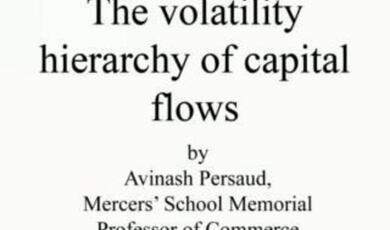What have Henry VIII and Elizabeth I got to do with 21st century development policy?
Share
- Details
- Text
- Audio
- Downloads
- Extra Reading
Development is a key term in the modernising global world. It is a target for many of the world’s economically poorer nations. It is widely considered that history self-evidently demonstrates that sustained economic growth and development is a realistic aspiration for today’s poorer countries, their leaders and their citizens. However, there is accompanying concern that the global development policies of the last seven decades have achieved a very mixed set of outcomes and that many countries and people remain poor.
This lecture argues that history can provide a surprisingly fresh approach to this problem, indicating the importance of policies which have not previously found many champions in the development literature. It is argued that we can learn a lot about development policies by paying careful attention to the first ever episode of successful economic development in the world – that of England. But to see the important lessons we need to adopt the right temporal perspective, examining the history of English society and economy from c. 1550 onwards, fully two centuries before the conventional dating of the start of the industrial revolution.
The first in a series of History and Policy lectures. The lectures in this series are as follows:
Choosing a past for the future: Why today's environment policy is also history
Summit Diplomacy: Some lessons from history for 21st century leaders
Download Text
18 June 2013
What have Henry VIII and Elizabeth I got to do with
21st Century Development Policy?
Professor Simon Szreter
This lecture discusses the importance for explaining England’s unique trajectory of economic growth, c.1600-1800, of two policies creating institutions not usually connected with economic growth. These were the parish register system for births, deaths and marriages instigated under Henry VIII; and the Poor Laws enacted by Elizabeth I: a universal identity registration system and a universal social security system. The lecture also shows how historical research on these aspects of Britain’s past has had some influence on current cutting-edge development policy.
That either of these institutions should be important pro-growth policies for a low per capita income economy, as England’s was c.1600, is news to mainstream economics. The dominant ‘Washington consensus’ view of the last three decades has focused on open-ness to international trade and inward capital investment , encouragement of entrepreneurship and free enterprise and the minimization of the costs of government and taxation as the recommended policies to promote economic growth in any context. The costs of a universal social security system is viewed as a burden on the productive economy, a tax on wealth-creators, a disincentive to work which necessarily raises the price of labour. A welfare system may be an affordable luxury for a prosperous developed economy, but is inadvisable for a low income country where informal and familial support systems can provide social security in a less bureaucratic, cheaper way.
In 1980 such policy proposals also enjoyed the apparent sanction of three decades of historical research. The orthodox interpretation of the first-ever episode of ‘economic development’, Britain’s industrial revolution, saw it as an explosive event concentrated into about fifty years from 1780 onwards, during which real per capita national income had tripled in value, with the focus of explanation on heroic entrepreneurship and revolutionary invention such as the steam engine, capital accumulation in private enterprise factories and price-led market expansion capturing international trade.
However the decade of the 1980s witnessed the publication of fundamentally revisionist historical research by a number of independent scholars, Wrigley and Schofield, Harley and Crafts, and Douglass North, based on new, independent sources of demographic, economic and institutional-legal evidence, establishing a new ‘slow growth’ orthodoxy. This has demonstrated that the English economy was set on an unusual, sustained upward growth trajectory during the entire period 1600-1800, outstripping the growth rates of the rest of Europe and eventually even overtaking the highly advanced Dutch economy. Douglass North has emphasized the importance of the prior emergence of long-term fundamental institutions such as security of private property and the rule of law, but these are shared in common by Holland and England and so do not explain England’s exceptional performance over the two centuries preceding the age of steam.
One major institution whose uniqueness has been increasingly confirmed by historical research since the mid-1990s is the Poor Law of England and Wales. While poor laws existed for some urban populations in continental Europe to maintain order in times of distress, there was nothing like the ubiquitous, universalist system enacted by Elizabeth I in the statues of 1598 and 1601. These Acts followed about 70 years of experimentation and were further consolidated over the ensuing 60 years, culminating in the Settlement Acts of 1662, into an effective system of mandatory parish-provided social security. Every subject of the Crown enjoyed a universal legal right of relief administered by each of over 10,000 parishes. Support therefore included the orphans, the aged and infirm along with the unemployed. The system was funded by a progressive taxation on landed wealth in the parish. Locally-residing J.P.s, holding their position at the pleasure of the Crown, were charged with legal monitoring of the system’s functioning, ensuring that rich were properly assessed and paid up and that the poor were fairly treated by the parish officials dispensing relief.
We have convincing evidence of several kinds that the system was a reality with consequences for the welfare and indeed, survival, of the poor in all the parishes of the land. Firstly, voluminous litigation between parishes has survived involving disputes over which parish might be responsible for relieving a particular individual. This was a highly mobile society with 60-90% of marriage certificates showing that at least one partner was not marrying in their parish of birth. As regularized by the Settlement Act of 1662, while an individual’s default entitlement to relief lay in their parish of birth, there were several recognized ways in which this entitlement could transfer with an individual’s mobility, most extensively for married women, whose legal ‘settlement’ became that of their husband’s parish. Parish registers were valuable for resolving a proportion of disputes relatively simply. Secondly several official surveys conducted between the 1690s and early 1800s confirm levels of funding in the system sufficient to support about 10% of the population. Thirdly demographic research on a 4% sample of England’s parish registers by the Cambridge Group for the History of Population demonstrates no regional or national correlation between high grain prices and mortality after the 1620s, over a century and a half earlier that the rest of western Europe.
Historians have therefore identified a number of pro-growth consequences of England’s precocious universal social security system. Freedom from chronic food-insecurity facilitated a more economically-rational and planning disposition throughout society, not just among the property-owning classes- for instance, most people saved-up before marriage. Provision for the elderly promoted labour mobility among the young since the older generation were no longer entirely dependent on close kin in old age. The closely associated institution of the parish registers not only ensured that only those legally settled in the parish received their due support but also that all those liable to pay into the system were identified. Indeed, a principal motive for creating the parish registers in 1538 had been to provide the expanding class of moderate and modest property-owners with a comprehensive legal record of their vital events and kin relations to ensure security of title to property of inter-generational wealth. Thus, transformation of mere property-holding into its more mobile form of fungible capital was facilitated for the entire English population in exactly the manner identified as so important and still lacking in many low income countries today in Hernando De Soto’s book, The Mystery of Capital.
Thus a review of the implications of revisionist comparative historical research into the world’s first episode of full economic development indicates the important contribution of two innovative English Tudor institutions not normally considered pro-growth by mainstream economics: a universal social security system and a universal identity registration system. Since a review of this historical research and its policy implications was published in the World Development Report 2006 and in the journal, World Development. in 2007, it has added to international interest in promoting these heterodox development policies, following South African’s introduction of its Child Support Grant and old age pensions and the Brazilian Bolsa Familia. Most recently Nandan Nilekani, the Director of the ambitious all-India Unique Identity Card scheme, has cited the historical research on early modern England as providing a rationale for such a system to promote development in India.
© Professor Simon Szreter 2013
This event was on Tue, 18 Jun 2013
Support Gresham
Gresham College has offered an outstanding education to the public free of charge for over 400 years. Today, Gresham College plays an important role in fostering a love of learning and a greater understanding of ourselves and the world around us. Your donation will help to widen our reach and to broaden our audience, allowing more people to benefit from a high-quality education from some of the brightest minds.


 Login
Login







